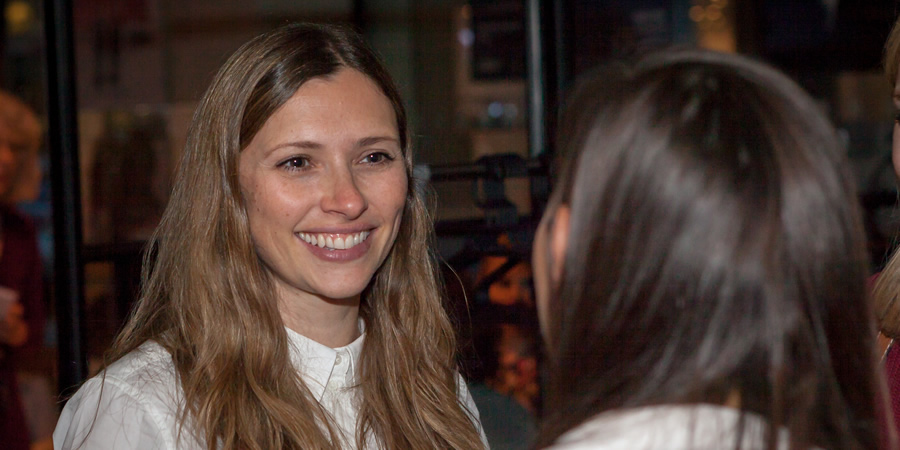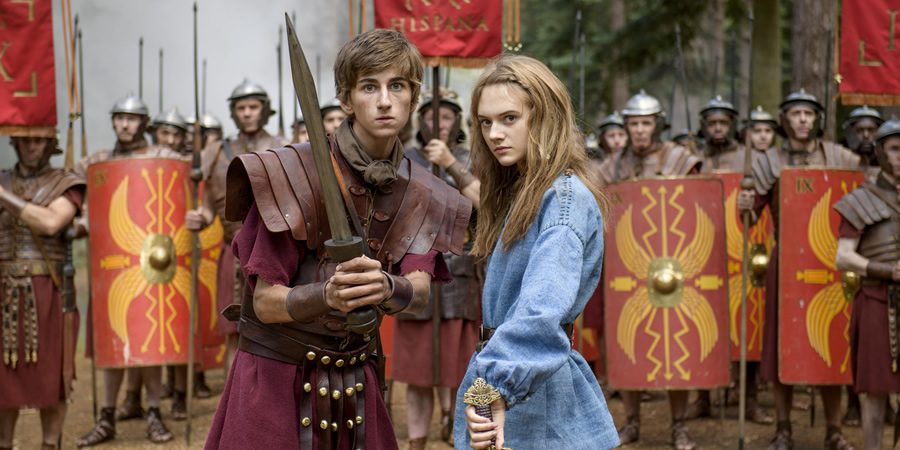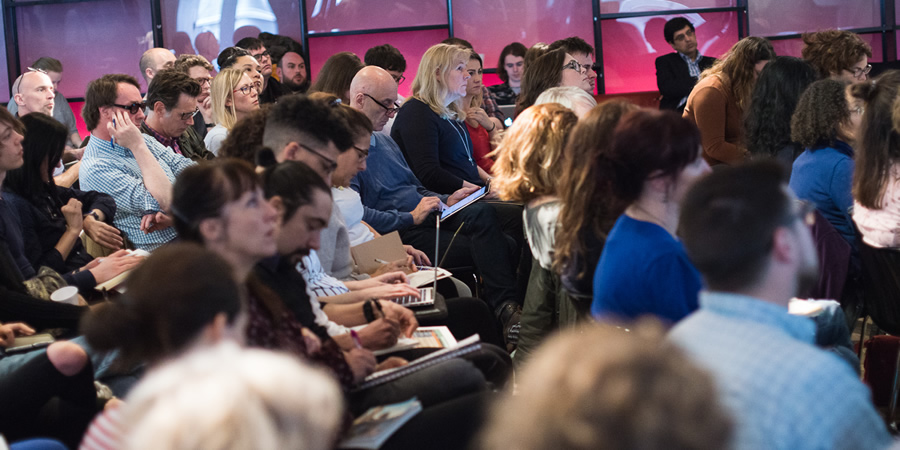Interview with LOCO's Denise Hicks

BCG Pro talks to Denise Hicks, the director of LOCO, about their great comedy film festival. This interview includes some brilliant tips for those making short films.
For those that don't know, what is LOCO?

LOCO runs the London Comedy Film Festival, the UK's only international comedy film festival. This is part of what we do to champion the craft of comedy filmmaking; screening comedy features and shorts that might otherwise get missed, particularly those from British independent companies and filmmakers.
We illuminate the craft and context of every film we show by having a live introduction and the film-makers in attendance. We also run training events, primarily for comedy writers, directors and producers.
From 11th - 14th July, we'll be back at BFI Southbank with our 7th festival.
What are some of the highlights of the 2019 festival?
We have the UK Premiere of Horrible Histories: The Movie - Rotten Romans opening the festival on Thurs 11th July, with a family premiere on Sunday 14th July accompanied by loads of fantastic activities for families beforehand.
We also have great British independent features from debut directors including Masters Of Love, filmed in London, and Metal Heart, an Irish film. Both have wonderful ensemble casts and both manage to reconcile drama and comedy perfectly, artfully tackling subjects around complex relationships.
We also have our largest ever selection of shorts, with five shorts programmes - the best in comedy talent from the UK. For the first time ever, we have a screening of just the award-nominated films where the filmmakers will find out there and then if they have won best short, best script, best performance, best ensemble or best short short. It's a really exciting event - prepare for some great acceptance speeches!
Finally, we have our largest ever training programme focusing on directing, writing and producing comedy to help us to kickstart the next generation of comedy filmmakers in the UK.

The Horrible Histories premiere must be very exciting indeed to have as the launch event?
It's so exciting! Horrible Histories is a huge British success and has such a strong following. There has been a lot of anticipation about seeing the franchise on the big screen for some time. Director Dominic Brigstocke is a legend in comedy TV (French & Saunders, Harry And Paul, Green Wing, Smack The Pony) so it's brilliant to see him in features.
Beyond this, it's a great springboard to have a lot of fun; as a festival we are always looking to bring the film out of the screen as much as possible and there is so much we can do with this title, particularly for the activities in the family funday on Sunday 14th.

What caused you and co-founder Jonathan Wakeham decide to establish the festival?
Jonathan and I are both fans of great British comedy. We were at the cinema one day discussing the peculiar fact that, historically, comedy just doesn't receive the accolades it deserves. While comedy films are often thought of as the most purely entertaining, even reassuring films, comedy has also led the way in challenging conventions, tackling taboos and provoking debate.
So although comedies often top the box office, they tend to be mainstream Hollywood movies or British transfers from TV. Independent and foreign language comedies, however artistically ambitious, struggle to get distribution, because they fall between multiplex (star-driven, heavily advertised) and arthouse (review-driven, award-laden) business models. We call this the 'Comedy Chasm'. LOCO exists to try and help bridge this Comedy Chasm by providing a platform for new emerging comedy filmmakers and training up the next generation, particularly in the business of making comedy.
The festival is run on a volunteer basis?!
As with any festival, we tap into a massive bank of volunteers and we run largely on a currency of goodwill and favours! We pride ourselves on treating people well and are very lucky that we have a huge community of filmmakers and supporters who help to keep us going.
This is the 7th year of LOCO... it keeps growing?
Absolutely! We are always learning and growing - particularly in terms of learning what works and trying out new ideas. We are keen to maintain a strong and close-knit hub of filmmakers and team members, so we are not hell-bent on having lots of venues, which can dilute the culture.
However, we do want to grow our reach to have a greater impact. The most important element of this is in terms of new and diverse voices - we are constantly striving to reach more people from different backgrounds.
Comedy needs to continue to hold up a mirror to society and so we wouldn't be doing our job if we only represented the voices of a limited section of the world around us. We are embarking on a big push for submissions in 2020 from the 'less than usual suspects'. We will also be doing more activity across the rest of the UK and even internationally, so watch this space!
How does the team select which films make it into the festival?
We have a strong programming ethos inspired by The Wizard Of Oz where we look for films with brains, heart and courage. Brains because we want comedy that is smart and considered; Heart because we want characters and stories that the audience can care about; and Courage because we are always looking for films that feel authored, that demonstrate originality and distinctiveness.
We like films that punch up, not down; they poke fun at authority, stand up for the underdog and tackle taboos, because we believe comedy can be a weapon for good.

It seems like the industry training side of LOCO is building up to be a bigger thing?
Our strategy works on a virtuous circle of 'getting it made' and 'getting it seen'. Right at the heart of this are the filmmakers.
As mentioned, we are on a mission to try and discover new and different voices and we feel that, because of our ethos around comedy being about more than just laughs, we're in the perfect position to help kickstart that next generation of comedy who are increasingly using comedy as a tool to tell stories in different ways.
While we have our biggest training programme to date at LOCO this year, expect to see more training and development opportunities throughout the year and throughout the UK as we look to uncover exciting new voices.
Aside from attending your industry days of course, what tips could you give aspiring filmmakers?
We receive hundreds of submissions every year. While some entries will undoubtedly be wonderful and surprising, there will inevitably be some that don't hit the mark. Over the last few years of programming the festival we've noticed it's often the same reasons that stop films from being selected. Our brilliant shorts programmer, Kevin Maynard, put together six key tips based on the most common mistakes and issues we see in both short and feature submissions. The full text will be on our website shortly, but here is a sneak peek in summary:
1. Don't outstay your welcome
What could be a rip roaring and hilarious few minutes is often dragged out to a much longer running time without the story to justify it. Try to always keep your film moving forward and don't allow it to get bogged down by unnecessary sequences just because they contain a couple of gags you like. Does it belong in our section for Short Shorts (<3 minutes)?
2. Think about your characters
If the central character is boring, surrounding him or her with crazy characters won't help. Instead, maybe ask yourself "Who's the most interesting person this could happen to?"
Female characters are still regularly side-lined or absent altogether. In many films where women do appear, their purpose is simply to set up comedic situations for the male leads, and no thought has been put into their own characters. We're expecting more consideration around women's roles.
3. Don't cast your Gran (unless she's really good)
Not specifically a warning concerning elderly relatives but a reminder about the importance of getting the right cast. There's nothing worse than watching a submission and thinking, 'I bet that was funny on paper'. The humour of your script will fundamentally live or die within the performances.
4. Be original and creative
Each year we see some films that have very similar characters delivering very similar jokes within very similar situations. Think about what your film offers that hasn't been seen a hundred times already. Try to be original and ambitious with your story and the characters that will inhabit it.
5. Don't forget about sound
Sometimes when watching a submission you wonder if the filmmaker budgeted for an expensive camera and a beautiful grade but was left with 50 pence for the entire sound department. This isn't something unique to comedy films but it's very hard to find something funny if you're straining to hear it.
6. Do what you want
As programmers we want to be thrilled by individual visions from confident and passionate filmmaking teams. So, don't worry about what might be selected by a festival or get two big thumbs up from a TV commissioner. Do what you think is best for the film you want to make. If you really want to produce a drawn out old-gag fest staring your inexperienced grandparents with sound recorded on a dictaphone in a wind tunnel, then go ahead. We look forward to seeing it.
Great tips! If people want to get their film into your 2020 programme, how do they go about that?
Submissions for the 2020 festival open terrifyingly soon, in early September. If you sign up to our newsletter on our website then you will be the first to know about submissions requirements and deadlines, and everything else LOCO. If you stay in touch on social media too, then you'll be sure not to miss a thing.
Find out more about LOCO at locofilmfestival.com
This article is provided for free as part of BCG Pro.
Subscribe now for exclusive features, insight, learning materials, opportunities and other tools for the British comedy industry.


